Category: Symptom Management
Articles relating to managing symptoms of terminally ill patients with the goal of maintaining comfort through the natural dying process.
Articles relating to managing symptoms of terminally ill patients with the goal of maintaining comfort through the natural dying process.
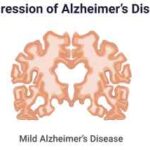
Delve into the complexities of Alzheimer's disease, the most common form of dementia. This article examines its causes, symptoms, diagnosis, and treatment options while discussing the challenges patients and caregivers face. Learn about ongoing research and potential breakthroughs in the fight against this devastating neurological disorder.

Delve into the world of dementia with our comprehensive guide. Understand its progression, learn about risk factors and prevention, explore diagnosis and treatment options, and discover coping strategies for cognitive decline. Empower yourself with the knowledge to navigate the challenges of dementia.
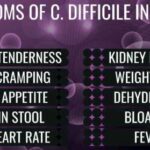
Explore comprehensive strategies for preventing, detecting, and treating Clostridium difficile infections in the elderly. Understand the risk factors, symptoms, and effective treatments to improve patient care and outcomes.
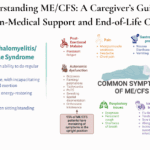
This comprehensive guide helps caregivers, families, and end-of-life professionals understand ME/CFS, providing practical tools for non-medical support. Learn about the disease trajectory from onset to end-of-life care, including when palliative and hospice care should be considered for optimal patient comfort and well-being.
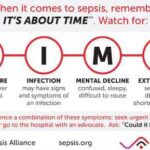
This comprehensive article explores bacteremia and sepsis in the elderly, examining prevention, early detection, and treatment. Understand the unique challenges and effective strategies for managing these conditions in older adults.
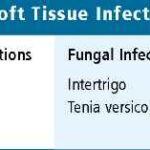
Discover comprehensive strategies for preventing, detecting, and treating skin and soft tissue infections in the elderly. This guide covers critical aspects, including hygiene practices, early signs of infection, and effective treatment options.

Learn essential strategies for preventing, detecting, and treating respiratory infections, such as pneumonia and influenza, in older adults. This comprehensive guide offers valuable insights for caregivers and healthcare professionals working with the geriatric population.
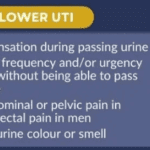
This comprehensive guide explores urinary tract infections (UTIs) in the elderly, covering unique challenges, prevention strategies, early detection methods, diagnosis, treatment approaches, and long-term management to ensure better health outcomes for older adults.
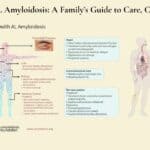
AL amyloidosis is an uncommon yet severe condition that impacts various organs. This detailed guide provides essential information for patients and their families regarding symptoms, disease progression, treatment options, and the timing of considering hospice care for their loved one.
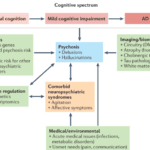
This guide provides hospice nurses, caregivers, and family members with essential information on dementia-induced psychosis, including its signs, symptoms, differentiation from other conditions, and effective management strategies.

This article provides practical tips and strategies for caregivers and family members to prevent dementia patients from removing their oxygen nasal cannula. Ensuring continuous oxygen use is essential for their health and well-being.

This article delves into the common medications that can lead to swelling in geriatric patients, with a focus on those receiving end-of-life care. It provides insights into prevention, management, and the importance of informed healthcare decisions.
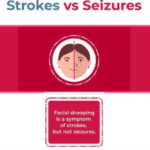
Learn how to recognize and respond to strokes and seizures quickly and confidently. This guide provides essential information on identifying symptoms, taking immediate action, and ensuring patient safety during these critical moments. Empower yourself with the knowledge to act swiftly and potentially save a life.

Understanding the nuances between a Cerebrovascular Accident (CVA) and a Transient Ischemic Attack (TIA) can be life-saving. This guide helps family members recognize signs, differentiate between CVA and TIA, and respond swiftly to ensure the best possible care.
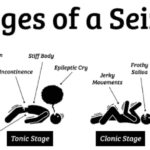
We understand that caring for a loved one in hospice can be a journey filled with compassion, love, and sometimes, uncertainty. When seizures are part of this journey, it’s natural to have concerns and questions. This guide is here to walk alongside you, offering knowledge and support as you navigate the complexities of seizure management in hospice settings.

Discover the transformative impact of music on dementia patients in this comprehensive guide. From improving cognitive function to enhancing mood and social engagement, music therapy offers a non-pharmacological approach to dementia care. Explore the science, benefits, and practical applications of integrating music into treatment plans for dementia patients.
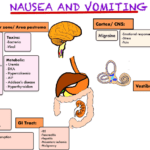
Nausea and vomiting are common and distressing symptoms in terminally ill patients. This comprehensive guide offers practical advice for caregivers and healthcare professionals on managing these symptoms, including pharmacological and non-pharmacological approaches, diet and lifestyle changes, and when to seek additional help.

Discover the advantages of low-dose dexamethasone in palliative care, including when to start, what to monitor, and guidelines for tapering off. Ensure optimal patient comfort and care.
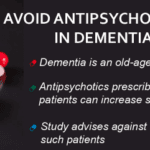
Unveiling the connection between antipsychotic drugs and dementia, this article delves into how these medications may elevate the risk or exacerbate symptoms. It provides a thorough examination of current research, expert opinions, and alternative approaches to managing dementia.

Discover the top twenty dermatologic conditions prevalent among the elderly. This guide covers symptoms, treatments, and tips for maintaining healthy skin in the golden years. It is perfect for caregivers and healthcare professionals.

Discover compassionate care techniques that address depression and anxiety in dementia without relying on antidepressants. This article delves into holistic approaches that enhance quality of life and promote mental well-being in dementia care.

This comprehensive guide provides essential insights into recognizing and addressing delirium in terminally ill individuals. It’s an invaluable resource for nurses, caregivers, and families, offering practical advice and empathetic support.

Palliative wound care plays a crucial role in enhancing the quality of life for terminally ill patients receiving hospice care. As a new hospice nurse or caregiver, understanding wound management is essential. In this article, we’ll explore evidence-based practices, practical tips, and resources to empower you in providing compassionate wound care.

This guide helps families of terminally ill patients comprehend absolute vs. relative risk reduction. It’s a resource for making educated choices about medication continuation, tapering, or cessation in collaboration with healthcare professionals.